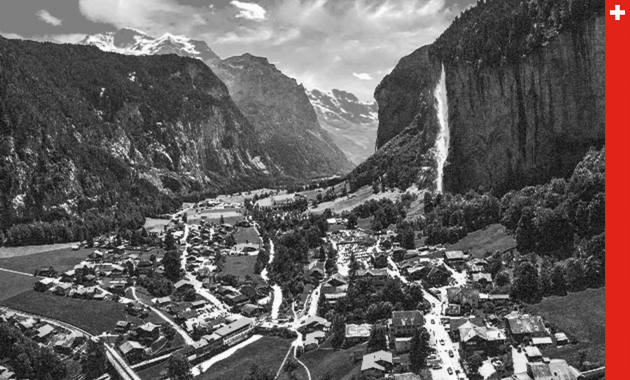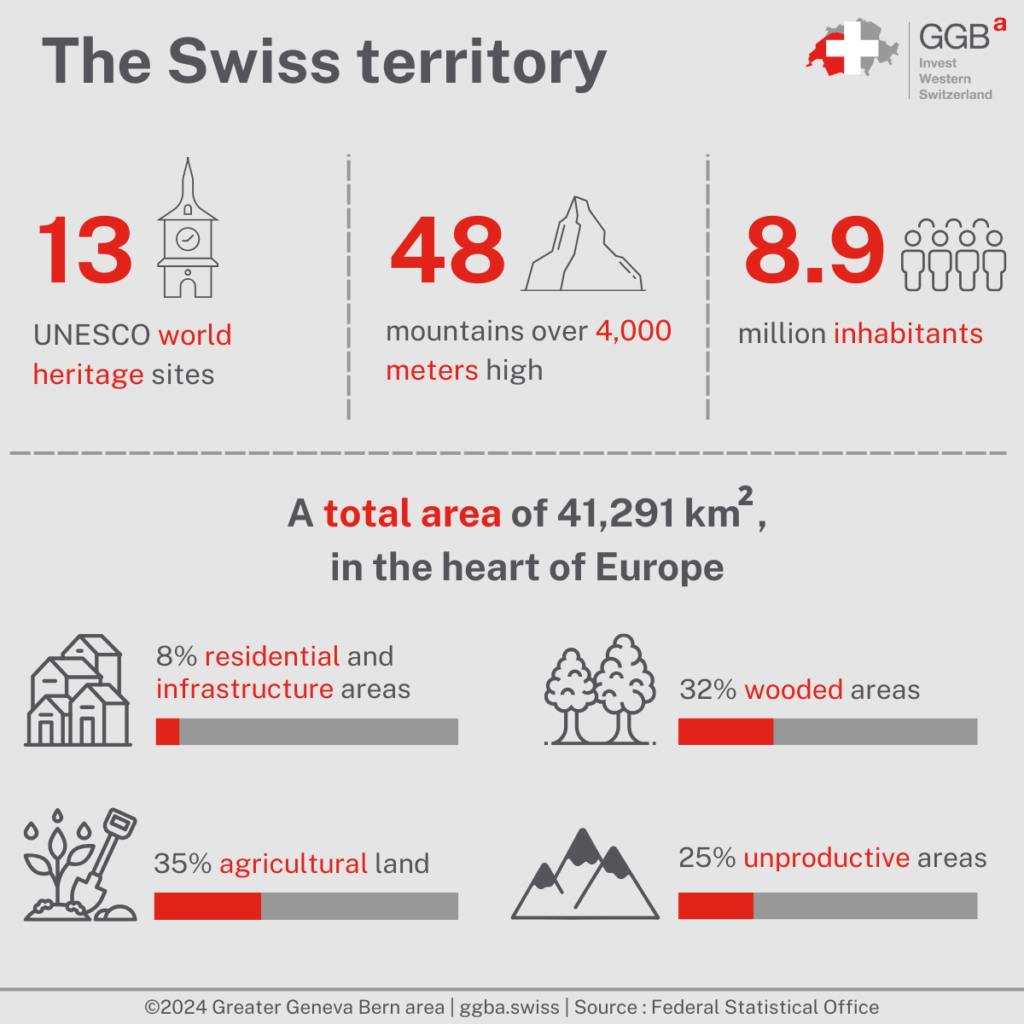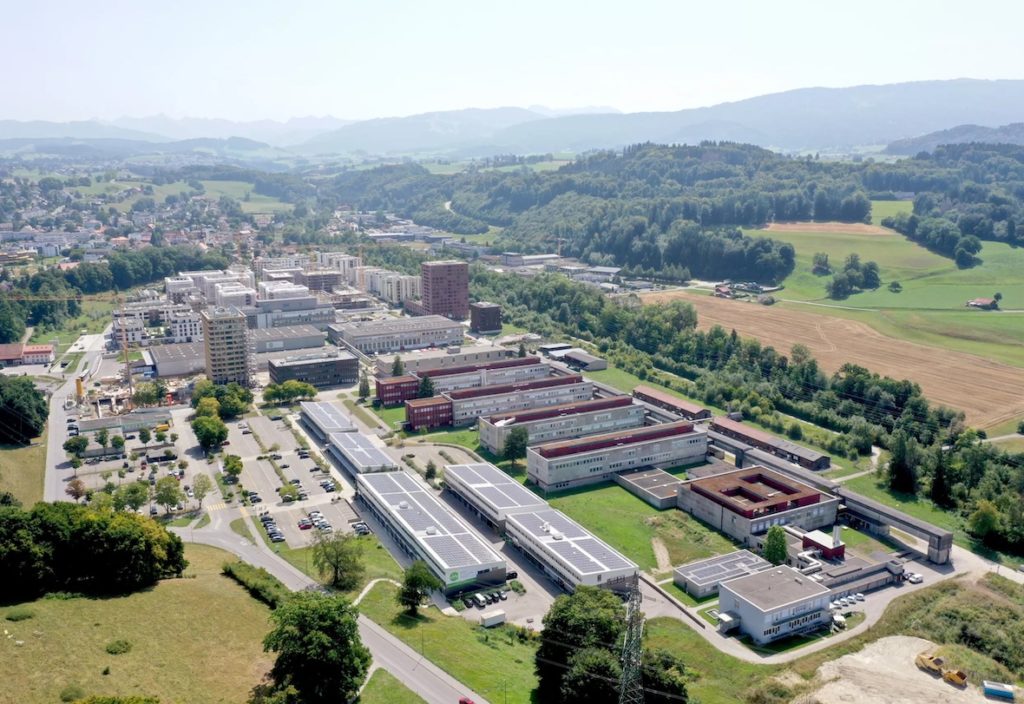
Building in Switzerland: land use planning and environmental protection

The Swiss landscape’s diversity and beauty are internationally renowned. To preserve this priceless heritage, the Swiss authorities have put several laws in place on land use planning and environmental protection, which is important to know before building infrastructure for your business in Switzerland.
Land use planning: building and zoning
Since land is a limited resource, it is essential to legislate its use to ensure that it is used in a measured and efficient manner. All directives in this area are made within the framework of the Federal Act on Spatial Planning. Thanks to this regulation, Switzerland ensures an orderly coexistence of a dense economic space with natural and agricultural regions. To fully understand how spatial planning laws are put into practice, it is necessary to briefly recall the functioning of the Swiss political system, which is divided into three levels of governance: the Confederation, the cantons, and the municipalities. The Confederation sets the general framework, while the planning and implementation of measures are the cantons’ and municipalities’ responsibility. In the case of spatial planning, each of these institutions has a specific role:
- The municipalities draw up an allocation plan (or zoning plan) that determines, among other things, the zones dedicated to housing, commercial and industrial activities, and agriculture. This allocation plan is then submitted to the relevant canton for approval.
- The cantons oversee the land use plan with the cantonal master plan. The latter contains the planning guidelines for the development of urbanization and transport infrastructure, for landscape protection and land use, and for land use plans.
- Finally, the cantonal master plans are checked by the federal authorities and submitted to the Federal Council for approval.
It is therefore mainly the cantons that regulate land use, and each of them defines its own rules for construction and planning.
Infrastructure for service and industrial companies can be built in specific zones, and permits are issued by the cantons themselves. It is important to know that foreigners wishing to purchase real estate in Switzerland are subject to special regulations defined by the Federal Act on the acquisition of real estate by persons abroad. This law requires authorization from the competent cantonal authority for a qualified property’s purchase.
The time required to obtain a building permit (filed with the municipal administration) varies according to the investment project. For example, for industrial buildings, it is necessary to obtain both a planning consent and an operating license: the duration of these procedures varies from one canton to another. However, it can be estimated that for projects considered non-problematic, that is to say, projects that do not present particular difficulties and do not require further clarification or special authorization, the duration of the procedure is generally a few months. This is the case as long as there are no grounds for appeal or protests.
To obtain more information on the commercial surfaces connected, on the available professional buildings, or on the necessary administrative steps to follow, it is possible to contact the economic promotion services of the cantons. For example, if you wish to build a facility your business in Western Switzerland, in the cantons of Bern, Fribourg, Vaud, Neuchâtel, Geneva, or Valais, you can contact the Greater Geneva Bern area, the investment promotion agency of Western Switzerland. The agency is at your disposal to answer your questions concerning the various stages of your establishment process in Switzerland.

Environmental protection
The main objective of the Swiss authorities, in close cooperation with the private sector, is to find solutions that serve both economic activity and nature. This is why spatial planning cannot be thought of without consideration for environmental protection. The latter is ensured by environmental legislation, which largely corresponds to that of the EU. This law aims to “protect people, animals and plants, their biological communities and habitats against harmful effects or nuisances and to preserve the natural foundations of life sustainably, in particular biological diversity and the fertility of the soil.”
As a result, the construction and operation of industrial and commercial facilities in Switzerland is subject to various federal and cantonal environmental protection regulations. The Federal Environmental Protection Act covers air pollution, noise, non-ionizing radiation, waste, environmentally hazardous substances, and soil pollution. The law is based on the precautionary principle, meaning the damage to the environment must be as limited as possible. Emissions are therefore limited by means of thresholds and regulations on building, equipment, transport, and operations.
An environmental impact assessment (EIA) is required for any planning, construction or modification project that may have a significant impact on the environment. This study examines whether a project complies with the legal requirements on environmental protection and only applies to specific projects within the framework of the ordinary authorization procedure at the construction and planning stage.
In a nutshell: by putting in place laws on land use planning and environmental protection, Switzerland is demonstrating its ability to build a future that is favorable not only for the economy (by authorizing the construction of industrial or commercial facilities) but also for the environment (by ensuring that each new construction respects the country’s biodiversity and heritage). In this sense, each canton controls the development of its territory to optimize the use of its land.
Greater Geneva Bern area (GGBa) is the investment development agency for Western Switzerland. If you would like to know more about land use planning in Switzerland or about other subjects that could help you in your implantation, contact us.
Our “Why Switzerland” articles can answer your questions.

